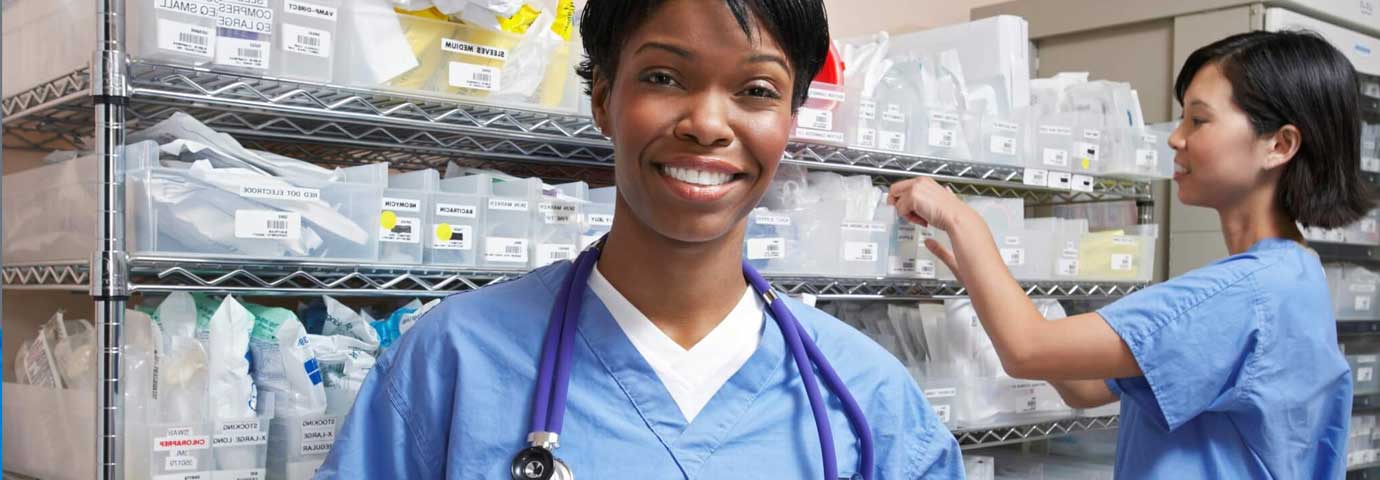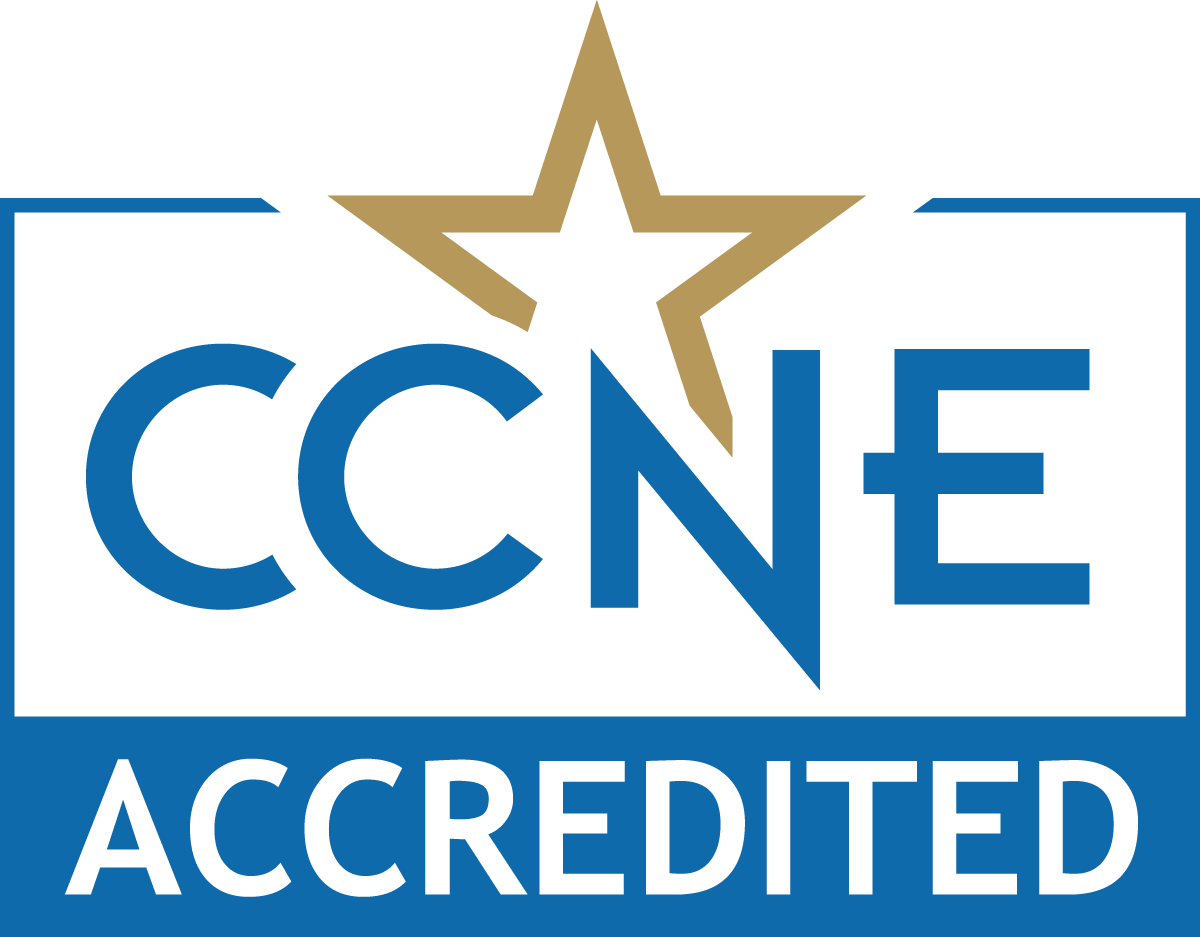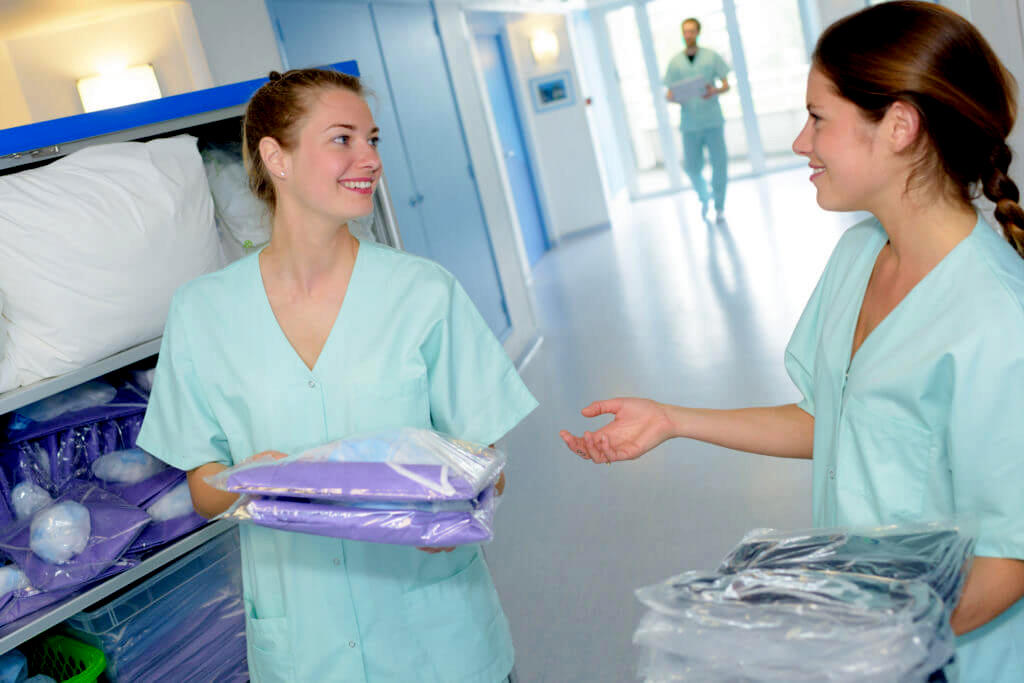Master of Science in Nursing – Infection Prevention and Control Specialization

Pursue Your Master’s in Infection Prevention and Control Online!
The Master of Science in Nursing – Infection Prevention and Control Specialization from Post University explores what it takes to create programs and monitor critical infection control indicators in healthcare delivery in a variety of care settings. This online program offers the opportunity to build the skills and insights you could use to develop infection prevention and control policies to improve patient safety, patient care, and patient outcomes. Coursework covers identification of infectious disease processes, prevention and control, designing surveillance systems, interpreting data, and more.
Commission on Collegiate Nursing Education (CCNE) Programmatic Accreditation
The baccalaureate degree program in nursing and master’s degree program in nursing at Post University is accredited by the Commission on Collegiate Nursing Education, 655 K Street NW, Suite 750, Washington, DC 20001, 202.887.6791.
The MSN – Infection Prevention and Control Specialization at a Glance
 Flexible Online Classes
Flexible Online Classes
![]() Monthly Start Dates
Monthly Start Dates
![]() 36 Credit Hours
36 Credit Hours
![]() 16- to 24-Month Program
16- to 24-Month Program
![]() Individualized Practice Experiences
Individualized Practice Experiences
Practice-Focused Curriculum for Real-World Skills
Coursework for your MSN – Infection Prevention and Control Specialization program is designed to help you build the foundation of insights and practical skills necessary to:
- Apply principles of epidemiology to environmental risk assessment
- Develop a comprehensive infection prevention and control program
- Design a surveillance system
- Interpret infection control data
- Use theoretical knowledge to guide advanced nursing practice
- Become leaders and collaborators in various healthcare settings
- Analyze models that expand the role of nurses in a global society
- Evaluate legislation, policies, and economics as applied to the current healthcare environment
- Appraise research to enhance professional nursing practice
Your MSN – Infection Control Program on Your Terms
To provide you with extra educational flexibility and choice, we offer two different tracks to help you earn your MSN: Term Based and SIMPath® (Competency Based).
Term Based (All Specializations)
- 100% online classes
- 8-week terms
- Monthly class start dates
- Consistent due dates
- Take one class at a time
SIMPath® (Non-NP Specializations Only)
- 100% online classes
- 16-week semesters
- Monthly class start dates
- Self-paced format
- Complete as many classes as you can*
* Start with two classes. Add in more as your schedule allows. You can register for additional classes up to the 13th week. Unfinished courses will need to be repeated.
Curriculum, Course Descriptions, & Program Outcomes
Please see the University Catalog for the online MSN program’s full curriculum with course descriptions and program outcomes.
MSN Online Admissions Requirements
Our admissions team is available to walk you through the application process and answer any questions on the online MSN degree program requirements. Contact us to learn more!
Tuition & Payment Options
View the Tuition and Fees section for information for the online MSN degree program costs.
We offer several funding options as you pursue your education. Please see the Scholarships and Other Ways to Save section to learn more about our:
- External Scholarships
- Nursing Tuition Reductions
- Education Partnership Program Tuition Reduction
- Post Eagle Program (Military)
- Payment Plans
- And more!
This program is not currently eligible for Title IV funding for new enrollments.

“The diverse range of courses, which can be easily applied to my daily goal of preventing Central Line-Associated Bloodstream Infections, has expanded my understanding of the complexities of healthcare policy and the crucial role registered nurses play in shaping it.”
Pursue Your Infection Prevention and Control Education at Post!
At Post University, we are focused on your success, in and out of the classroom. A student success advisor will work with you one-on-one to answer your questions and help you address challenges throughout your Master of Science in Nursing – Infection Prevention and Control Specialization program. We are here to help you achieve your goals for the control and prevention of infections, disease, and outbreaks.
Ready to make a difference for public health and your future? Contact us to learn more about our online master’s in infection prevention and control.
FAQ’s
What does infection prevention and control mean?
Infection prevention and control within an MSN program refers to a specialized area of nursing practice that focuses on reducing the risk of healthcare-associated infections and promoting safe and effective care. It involves implementing evidence-based strategies to prevent the spread of infections within healthcare settings, including hospitals, clinics, and long-term care facilities.
What does an infection control nurse do?
An infection control nurse is responsible for preventing, monitoring, and managing infections within healthcare settings. Their duties include developing and implementing infection control protocols, conducting surveillance to identify outbreaks, educating healthcare personnel on best practices, and ensuring compliance with infection control guidelines. They play a crucial role in safeguarding patient and staff health by minimizing the risk of healthcare-associated infections.
What is a competency-based or self-paced MSN-IPC specialization?
A competency-based or self-paced MSN-IPC specialization allows students to advance through the curriculum at their own pace, focusing on mastering specific skills and knowledge areas related to infection prevention and control. Instead of traditional fixed schedules, students progress as they demonstrate proficiency in predefined competencies. This flexible learning model accommodates varying levels of prior knowledge and skills and can expedite or extend program completion based on individual progress.
Can I get a master’s in infection prevention and control online?
Yes, Post University’s MSN-IPC specialization is offered in flexible online classes that are available in two different tracks; term-based and competency-based, with individualized practice experiences.
How long does it take to achieve an MSN-IPC?
Earning a Master of Science in Nursing (MSN) with an Infection Prevention and Control (IPC) specialization typically takes around 16 months to 24 months to complete. However, program duration can vary based on factors such as part-time enrollment, prior coursework, and specific curriculum requirements.
Is it hard to obtain an MSN-IPC?
The difficulty of obtaining a Master of Science in Nursing (MSN) with an Infection Prevention and Control (IPC) specialization can vary based on individual factors such as prior nursing experience, academic background, and program requirements. It is a rigorous program that demands dedication and a strong understanding of infection prevention principles. However, with the right support and commitment, many nurses find it achievable and rewarding, as it can help build skills in infection control leadership and healthcare quality improvement. Success in obtaining an MSN-IPC primarily depends on individual effort and determination.
This program is not currently eligible for Title IV funding for new enrollments.
Note: This program is not designed to fulfill the educational requirements for any licensure or certification. Post University does not speak on behalf of any licensing board or body but does assist students in understanding licensure requirements.